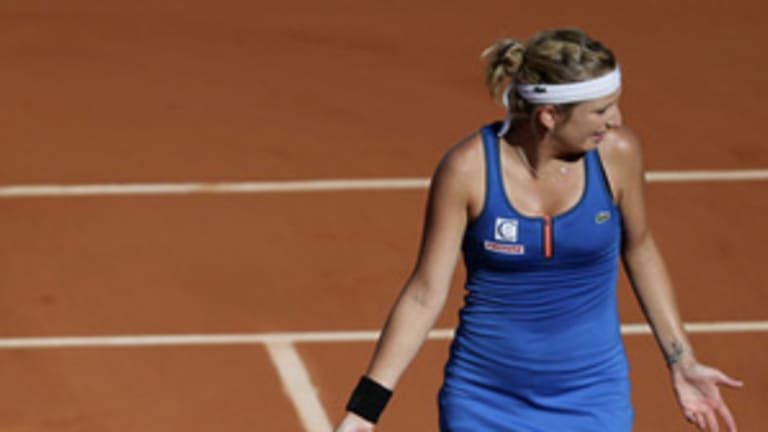Timea Bacsinszky, world No. 15 and recent French Open semifinalist, spoke those words to the BBC earlier this year. She was talking about her father, Igor.
The 26-year-old from Switzerland nearly quit tennis two years ago to work in a hotel after years of struggling with her overbearing father, who Bacsinszky has called a “control freak.”
“I have been a kid of like a syndrome of pushy parents,” Bacsinszky told TENNIS.com at Indian Wells. “It’s happening a lot, especially in tennis, because—especially in women’s tennis, because for sure, as a woman, as a young girl, you can never go against the power of the dad.”
Bacsinszky is only the most recent case study in tennis parenting gone horribly wrong. Jelena Dokic, Mary Pierce, Mirjana Lucic-Baroni, Jennifer Capriati and Steffi Graf are just a few of the players who have publicly dealt with over-involved parents.
Peter Graf was labeled “Papa Merciless” by the media for the control he had over his daughter and her career. Stefano Capriati was notorious for pushing his daughter into the spotlight at just 13. Lucic-Baroni, who upset Simona Halep at the French Open, survived a roller coaster career dealing with a physically abusive father.
"Beatings ... there have been more of them than anyone can imagine,'' Lucic, then just 16, told a Zagreb newspaper, Slobodna Dalmacija. "Sometimes it was because of the lost game, in other cases for the lost set or badly played trainings. I don't want to even say what happened after the matches I lost.''
